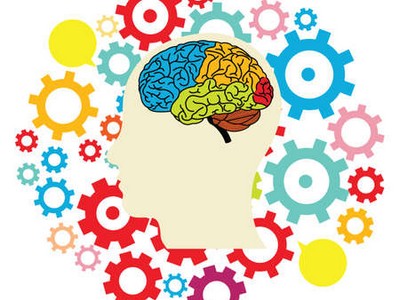
Anxiety Depression Stress Test Psychologist Surfers Paradise (07) 5539 9798
Anxiety And Depression Psychologist Surfers Paradise

Introduction: Treatment Of Anxiety And Depression Psychologist Surfers Paradise
Anxiety and depression are two of the most typical psychological health disorders that individuals deal with today. While they might appear like different conditions, they are typically interconnected and can have a considerable influence on a person's overall wellness. In this short surfersparadisechiropractic.com.au article, we will check out the connection between stress and anxiety and depression, the signs related to MDD Symptoms Psychologist Surfers Paradise each condition, and what steps individuals can require to manage and overcome these challenges.
Understanding Anxiety and Depression
What is Anxiety?
Anxiety is a natural action to tension or danger. It is defined by sensations of anxiousness, concern, and fear about daily circumstances. While it is regular to experience anxiety from time to time, persistent stress and anxiety can disrupt everyday activities and impact one's quality of life.
What is Depression?
Depression, on the other hand, is a state of mind disorder that impacts how you feel, believe, and handle everyday activities. It exceeds normal feelings of unhappiness or sorrow and can continue for weeks, months, and even years. Depression MDD Depression Psychologist Surfers Paradise can make it tough to operate in different areas of life, consisting of work, relationships, and self-care.
The Connection Between Anxiety and Depression
Anxiety and anxiety typically go hand in hand. Many individuals who experience anxiety likewise struggle with symptoms of anxiety, and vice versa. The link in between the two conditions can be attributed to a number of aspects:
Chemical Imbalance: Both stress and anxiety and depression are thought to involve an imbalance of neurotransmitters in the brain, such as serotonin and dopamine.
Shared Hereditary Elements: Research study recommends that there may be a hereditary predisposition for developing both stress and anxiety and depression.
Stressful Life Occasions: Distressing experiences or substantial life events can activate both anxiety and anxiety symptoms.
Negative Believing Patterns: Individuals with stress and anxiety tend to have unfavorable thoughts and stress exceedingly about future events. These thought patterns can add to the development of depression.
Physical Symptoms: Stress and anxiety and depression can manifest with comparable physical symptoms, such as fatigue, sleep disturbances, and modifications in appetite.
Symptoms of Anxiety
Anxiety can manifest in different ways and may provide various signs in each person. Some typical signs of stress and anxiety consist of:
Excessive Worry: Consistent and excessive stressing over everyday scenarios, even when there is no evident reason for concern.
Restlessness: Feeling on edge or unable to unwind, often accompanied by physical symptoms like shivering or fidgeting.
Difficulty Concentrating: Problem focusing or remaining present due to racing ideas or preoccupation with worry.
Irritability: Feeling easily annoyed or upset, sometimes without a clear cause.
Sleep Disruptions: Insomnia or agitated sleep due to racing thoughts or worries.
Physical Signs: Anxiety can also manifest physically, leading to symptoms such as quick heart beat, shortness of breath, dizziness, or gastrointestinal issues.
Symptoms of Depression
Depression can vary in severity and presentation from individual to person. Some typical symptoms of anxiety include:
Persistent Unhappiness: Feeling unfortunate, empty, or helpless for an extended duration, typically accompanied by tearfulness.
Loss of Interest: Losing interest in activities once enjoyed and experiencing a lack of motivation.
Changes in Cravings: Considerable weight reduction or gain due to modifications in hunger or consuming habits.
Fatigue: Feeling tired and doing not have energy, even after getting enough sleep.
Difficulty Focusing: Problem focusing, making decisions, or remembering details.
Suicidal Thoughts: In extreme cases, anxiety can cause thoughts of self-harm or suicide. It is vital to look for assistance if you experience these thoughts.
How to Manage Anxiety and Depression
Managing anxiety and anxiety requires a thorough technique that deals with both the physical and emotional aspects of these conditions. Here are some methods that can help:
Seek Expert Aid: Speak with a psychological health professional, such as an anxiety psychologist in Surfers Paradise, who can provide a precise medical diagnosis and develop a customized treatment plan.
Medication: In some cases, medication might be recommended to help manage symptoms of stress and anxiety and depression. A competent doctor can identify if medication is necessary.
Therapy: Cognitive-behavioral treatment (CBT) and other evidence-based treatments can help people determine negative idea patterns, establish coping systems, and improve overall well-being.
Self-Care: Take part in activities that promote self-care, such as regular workout, practicing relaxation techniques (e.g., deep breathing or meditation), guaranteeing adequate sleep, and preserving a well balanced diet.
Social Support: Reach out to pals, household, or support system who can supply understanding and encouragement during challenging times.
Avoid Drug abuse: Substance abuse can intensify signs of stress and anxiety and depression. It is necessary to prevent self-medicating with drugs or alcohol.
Frequently Asked Questions
- Anxiety is identified by extreme concern and fear about daily situations, while anxiety involves consistent feelings of sadness or hopelessness that affect daily functioning.
- Yes, stress and anxiety is thought about a mental illness when it disrupts life and causes considerable distress.
- Signs of anxiety in guys might include irritation, anger or aggression, increased risk-taking habits, drug abuse, or physical symptoms like headaches or digestive issues.
- While there is no conclusive remedy for anxiety and depression, they can be effectively handled and treated with the best mix of therapy, medication, and self-care strategies.
- Yes, anxiety is a mental illness identified by consistent feelings of sadness, despondence, and a loss of interest in activities when enjoyed.
- Offer assistance and support, listen without judgment, and encourage them to seek expert help. Inform yourself about their conditions to better comprehend their experiences.
Conclusion
Anxiety and anxiety are complex conditions that frequently exist together and can considerably impact a person's well-being. Comprehending the connection between these 2 conditions is important for efficient treatment and management. By seeking professional aid, practicing self-care, and developing a strong support system, people can take steps towards conquering anxiety and anxiety and gaining back control over their lives. Remember that you are not alone in this journey, and there is wish for a brighter future.
What Are The Signs Of Depression Psychologist Surfers Paradise
Depression Information Psychologist Surfers Paradise
Surfers Paradise Chiropractic Centre-Dr. Bruce Whittingham
12 Thomas Drive, Surfers Paradise QLD 4217
(07) 5539 9798
https://surfersparadisechiropractic.com.au